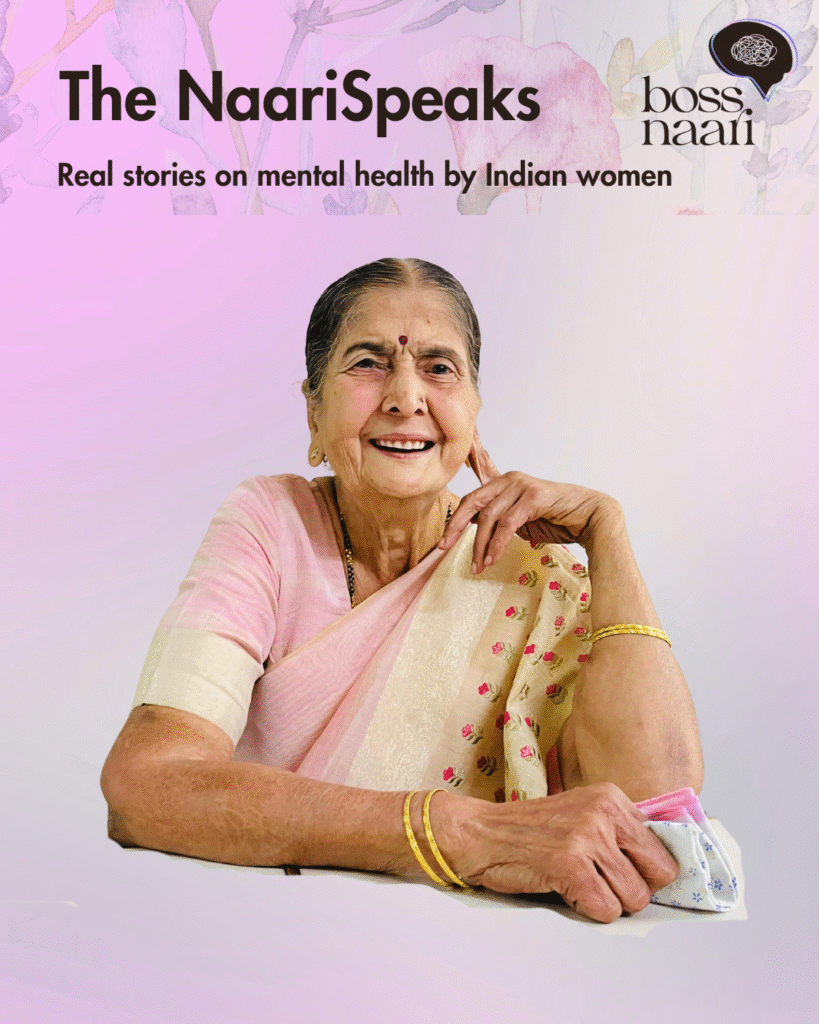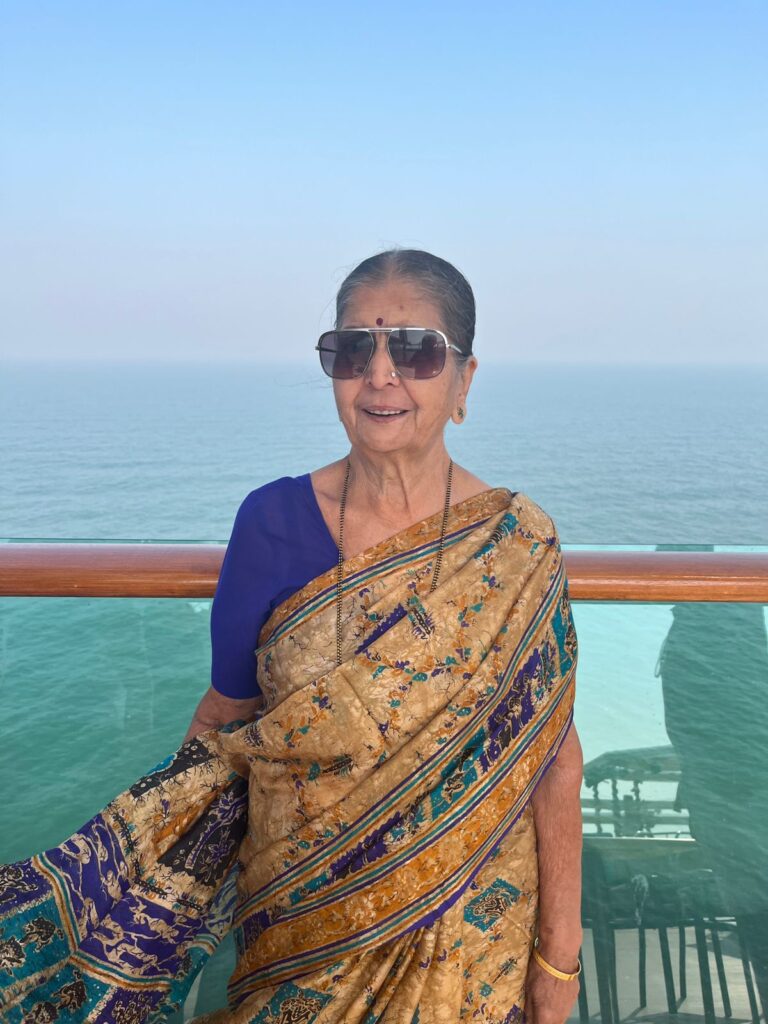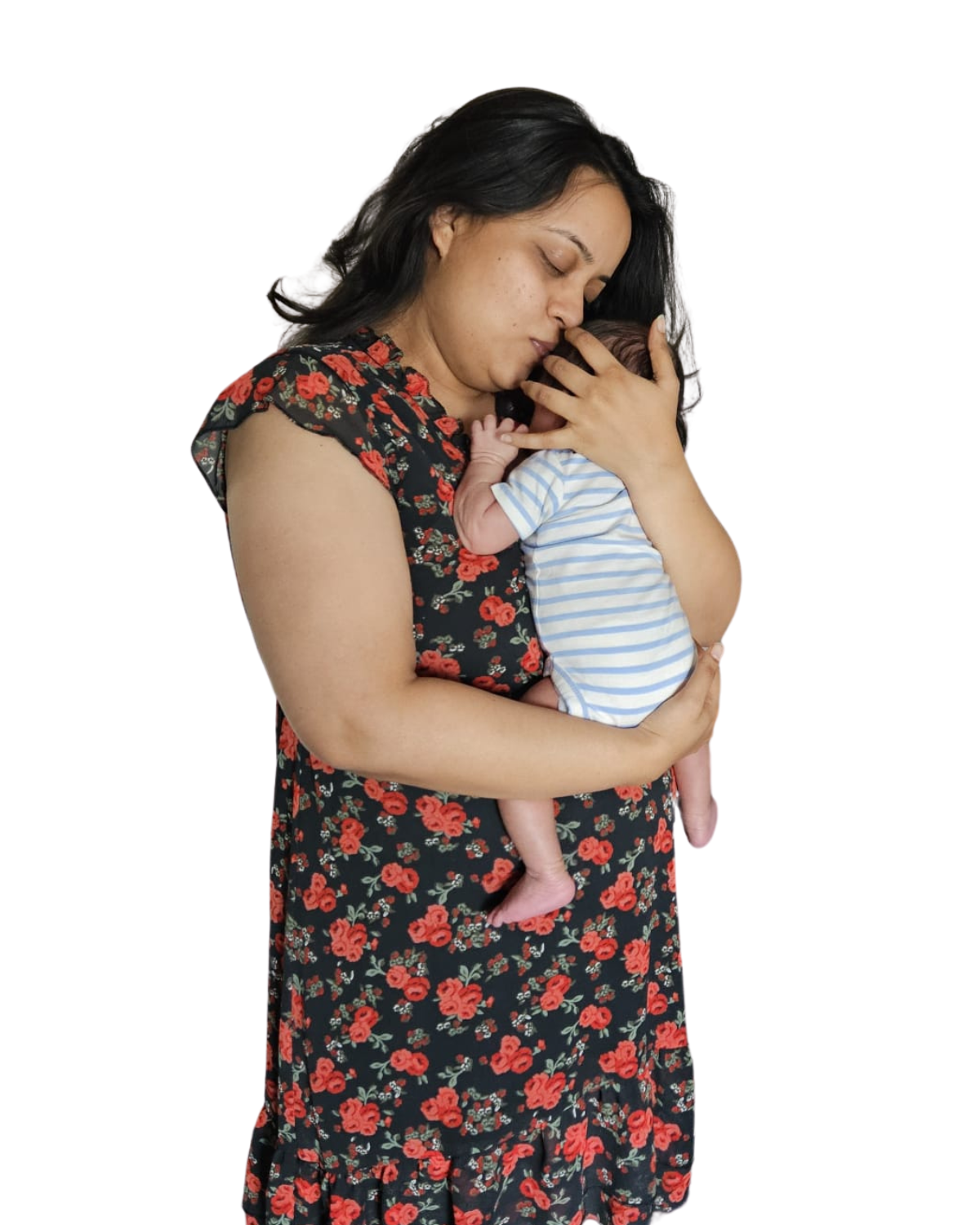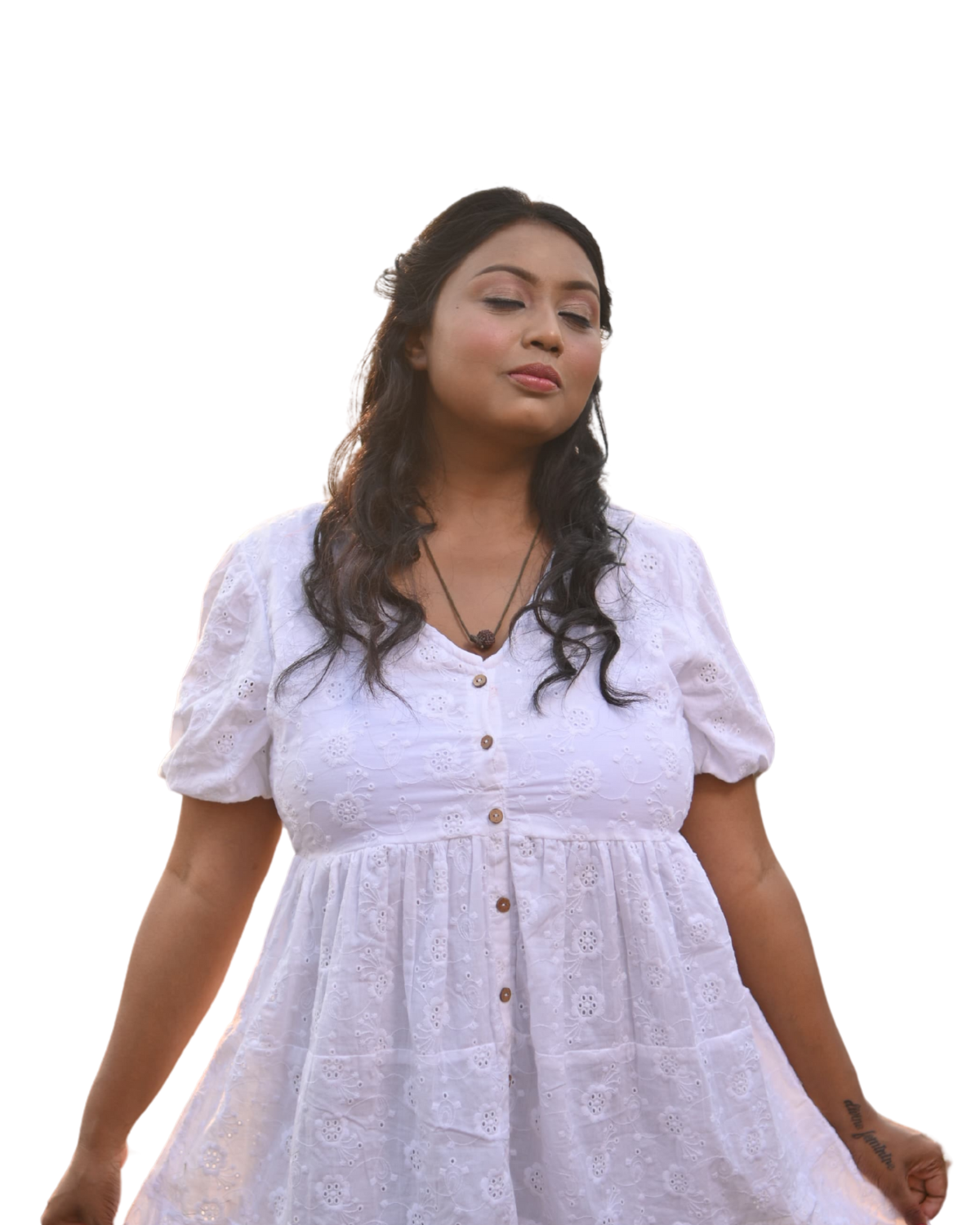Back in the 90s, women weren’t ‘supposed’ to start businesses. Vrinda did anyway
Starting a business with no financial backing, and still leading it at 81! Vrinda Datye defines every stereotype of what an older Indian woman is expected to be. Long before “breaking the glass ceiling” became a buzzword, she quietly shattered it. In 1991, she founded Seva Nursing Bureau to fight for dignified work for nurses, challenge corrupt systems, and train ayas with both skill and heart. With her children’s support and her own unshakable will, Vrinda built not just a service, but a lasting legacy of care, courage, and change.
- Mrunal
- July 25, 2025
Boss Naari: They say women can’t handle money or run businesses. But you started one in the 90s, with no financial support, and built it from scratch. How did the idea for starting your own bureau come about?
Vrinda: I was a nurse at hospitals for 20 years, that was my profession. But suddenly, in one of the weeks, I didn’t get a single call for work. That was very rare, I was always booked. So I went to KEM Hospital to ask why.
The doctor there said, I don’t have the time to call and manage nurses everyday. It’s just easy to call a bureau, and they arrange nurses for us, whenever we have the need.”
The doctor there said, I don’t have the time to call and manage nurses everyday. It’s just easy to call a bureau, and they arrange nurses for us, whenever we have the need.”
The nurses provided by bureaus were untrained, for cost-cutting purposes. So there was definitely a need for well-trained nurses. I knew what were the duties at the hospital, and I also knew many trained nurses that were looking for employment. That was my Eureka moment. I thought to myself: Why not start my own bureau?

Boss Naari: Wow, that sounds so cool. What challenges did you face when starting?
Vrinda: Well, it was a lot of hard work. My son would go on his cycle to the nurses’ homes and tell them when there was a gig needed. Back then mobile phones were not very common, so my daughter would follow-up with the hospitals when there was a vacancy for a nurse.
There was a lot of corruption we faced too. The only way for us to communicate to the doctors was through the hospital telephone operator. And they would straight up tell us “You won’t get any calls from us, even if there is a need, if you do not pay us a commission.” These operators who were bribed by other bureaus, had total control over which nurse got allocated. I couldn’t cut that commission out, because that would mean my nurses wouldn’t get paid enough. So I went straight to the hospital and donated Rs 3000 to install a water filter at the hospital, and proudly told them “I will donate to the hospital but will not pay any commission”. This way, I felt honest, knowing that the donations at least helped the needy patients.
Over the years, the demand for nurses facilitated through bureaus went down. I was told “We don’t need a nurse, we don’t need any IVs, we need someone to take care and maintain hygiene of the patient”
Another challenge was that a lot of the Ayas at my bureau became HIV positive. So I naturally hesitated giving them any work because it was risky. Somehow, the media caught this news and blew it over by accusing me of discriminating against HIV positive people. This was disheartening because that was not my intention and I was clearly misunderstood. When I realized this, I decided to inform my patients and ask for their consent if they would be okay with an Aya that has HIV. This way, I no longer felt responsible for any risks. So, as an entrepreneur you have to be smart in protecting your reputation, even if you have the correct intentions.

Vrinda and her daughter attending the assignment calls (1992)
Boss Naari: How did you manage the recruitment and training of these women?
Vrinda: My friends and my sister-in-law came forward and said, “You handle the bureau, we’ll train ayas.”
We trained them in everything; giving a bath, changing bedding, managing urine bags, hygiene, and respectful communication. Because a nurse can’t visit every hour, the ayas had to be capable and confident.
We even taught values; punctuality, honesty, dignity of labor. Some of them had never seen themselves as professionals before. But they learned. I always told them, “Anyone can earn money. But in our job, you earn blessings too.

Vrinda in an intensive training session with ayas (1991).
Boss Naari: Did you ever imagine you’d be running your own business when you started working as a nurse?
Vrinda: Never. I just wanted to do my job well. But today, I have my own bungalow all because of this work and the blessings that came with it.
I cared for many well-known people such as P. L. Deshpande, Bhimsen Joshi, the mother of Sai Paranjpe, industrialists, businessmen, the Naik Nimbalkars, the Kirloskars. Those were my golden days.
Once, I got a call to a familiar-sounding address. I went with the aya. When we reached, a Parsi lady saw me and immediately recognized me. She told her daughter-in-law, “She’s the nurse who took care of my son 20 years ago when he had a high fever.” It made me believe that my work was greater than mine.

Vrinda Datey receiving an award for her excellent work. (1993)
Boss Naari: Most service industries lose their employees. It’s very difficult to retain them once they understand the job. How did you deal with this?
Vrinda: I never believed in cutting from what the ayas or nurses earned. I took a small commission and I never raised it. At one point, I had 500 ayas working with me. Every year, instead of increasing my share, I increased their salaries. I didn’t follow the model where bureaus collect everyone’s pay and then distribute it. I only took my small portion. My real investment was in the women themselves.

A snapshot of Vrinda during the cruise journey
Boss Naari: More than a business woman and a nurse. What more qualities describe you as a person?”
Vrinda: I love travelling. I’m very passionate about experiencing new cultures and ways of living. I got my passport in 2011 and after that, I travelled a lot. Europe, America, Australia, New Zealand. Only a few places in India are left now. I once went on a cruise from Australia to New Zealand. I couldn’t swim or eat everything due to age, but I felt my grandchildren would enjoy it. So later, I took all of them, my sons, daughters-in-law, and granddaughters on a cruise from Mumbai to Goa. We had such fun!
Now, I live in my own bungalow. I like open spaces. I can’t live in a city flat. I do gardening, cook, read, and spend time with my grandchildren and friends. After COVID, my travel has reduced, but I still enjoy life fully.
Want to be featured on NaariSpeaks?
Do you have a story that could inspire another woman or help someone going through a similar journey? We’d love to hear from you and share your voice with our community.
Liked what you read?
Sign up and get the latest blog posts delivered straight to your inbox.
We respect your privacy
Related Arcticles

Back in the 90s, women weren’t ‘supposed’ to start businesses. Vrinda did anyway
Back in the 90s, women weren’t ‘supposed’ to start businesses. Vrinda did anyway Starting a business with no financial backing, and still leading it at

The Unseen Side of intra-uterine insemination
Suchandra, an Indian woman, conceived her baby in the Netherlands through IUI. While the treatment worked on the first try, a rare, unpredicted complication during pregnancy led to an arduous journey. What was her story, and what critical advice does she have for others navigating fertility treatments? Read more to find out.

Letting Go of a Career Path
Discover the story of Alina, who left India to chase her medical dreams in Russia, battled depression, survived a COVID-19 pandemic and a war, and found healing through faith, creativity, and self-discovery.
